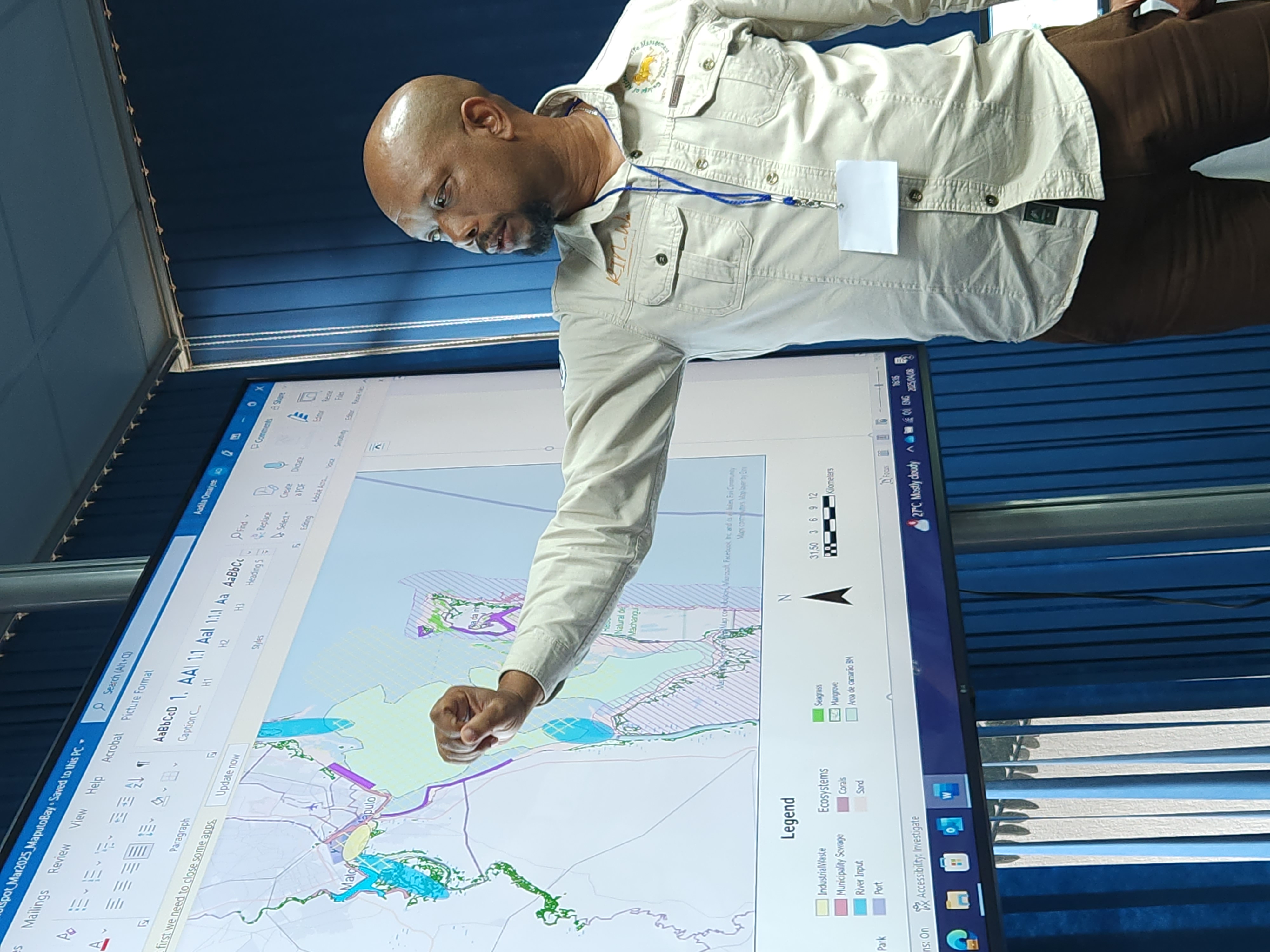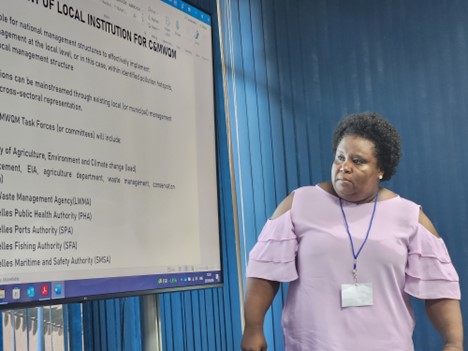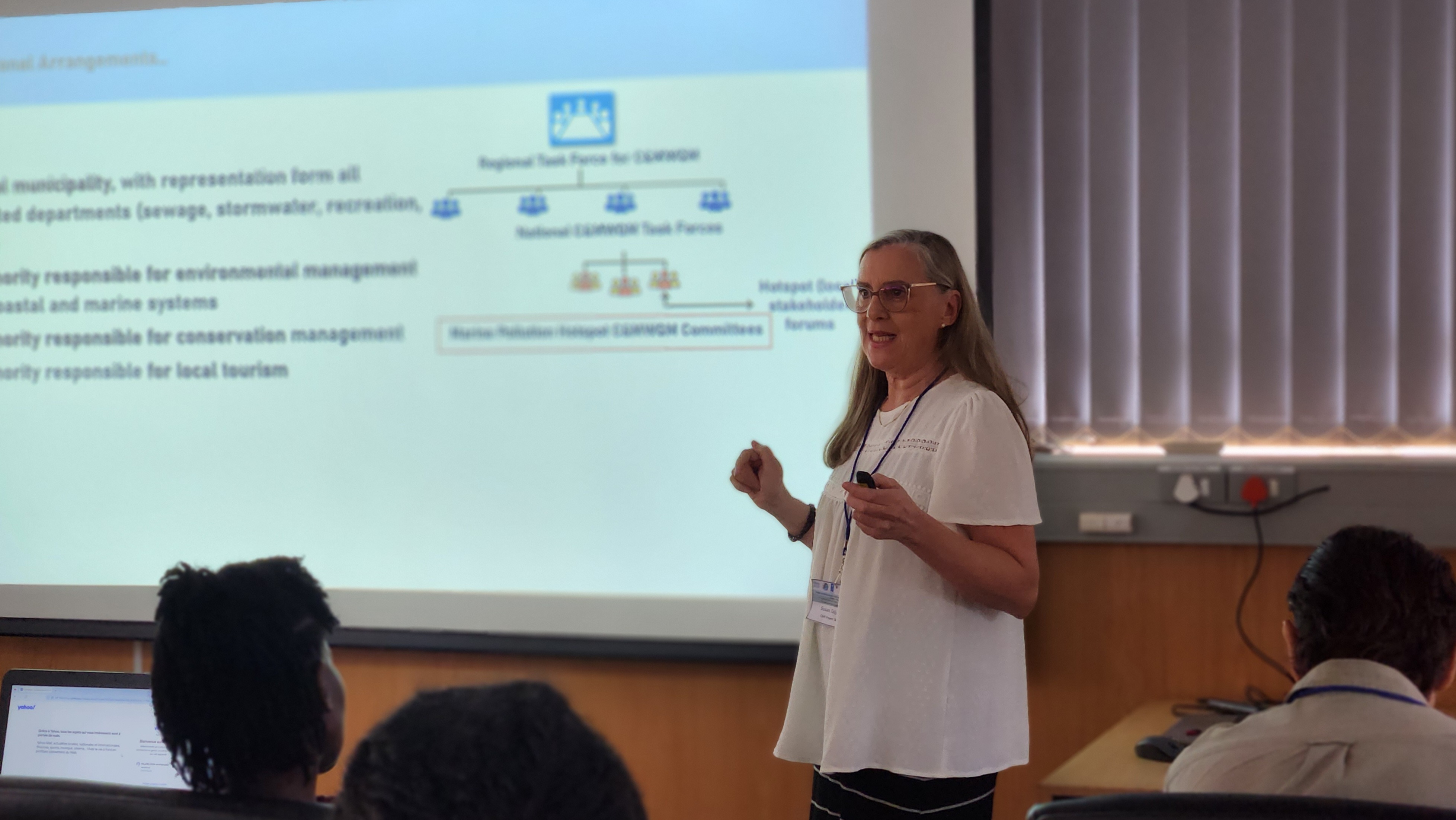From frameworks to action: CSIR develops capacity to tackle marine pollution in the West Indian Ocean
Efforts to combat marine pollution in the Western Indian Ocean (WIO) region took a significant step forward during a weeklong training and capacity development workshop hosted by the Council for Scientific and Industrial Research (CSIR) in Durban from 7 to 11 April 2025.

Efforts to combat marine pollution in the Western Indian Ocean (WIO) region took a significant step forward during a weeklong training and capacity development workshop hosted by the Council for Scientific and Industrial Research (CSIR) in Durban from 7 to 11 April 2025. The training course was developed and facilitated by the CSIR’s team of coastal and marine water quality experts and formed part of a broader regional initiative to develop and implement national-level Coastal and Marine Water Quality Management (C&MWQM) plans for identified pollution hotspots across the WIO region.
Commissioned by the Nairobi Convention Secretariat as part of Phase 2: Implementation of the Strategic Framework at national and sub-national levels, the workshop brought together country teams from Zanzibar, Kenya, Tanzania, Madagascar, Mozambique and South Africa. The aim: to equip participants with the practical tools and technical knowledge needed to translate national frameworks into detailed, site-specific management plans.
“These frameworks and plans will be further developed and refined by the various countries in consultation with national and local stakeholders,” says CSIR principal researcher Dr Susan Taljaard, one of the lead facilitators of the programme.
Through a combination of presentations, hands-on work sessions and strategic peer discussion sessions, country teams made significant progress in drafting local C&MWQM plans for marine pollution hotspots in their respective regions. These draft plans incorporated zoning approaches, activity-based monitoring programmes, and the application of guidelines for setting water and sediment quality targets, laying the groundwork for future implementation at the local level.
The workshop also served as a platform for participating countries to share progress and challenges in developing their national frameworks, fostering cross-country learning and regional cohesion. Representatives from the United Nations Nairobi Convention Secretariat, alongside national focal points and port authority representatives, contributed valuable perspectives to the discussions.
“It proved to be a highly productive week,” says CSIR senior researcher Aadila Omarjee. “The participants developed high-level and detailed C&MWQM plans, which I am confident can be applied in their countries and will be supported for application in marine pollution hotspots.”
The training builds on foundational work undertaken during the first phase of the WIOSAP project, which saw the CSIR develop a Strategic Framework for C&MWQM (UNEP et al., 2022), along with practical guidelines and country-level implementation toolkits. These were formally adopted at the 11th Conference of Parties to the Nairobi Convention in Madagascar in August 2024.
“It was wonderful to work all the way through to the implementation phase of this initiative with country team members and equip them with advanced planning tools for ocean protection,” said CSIR principal researcher Steven Weerts. “Reducing pollution, adapting to climate change, and protecting coastal livelihoods depend on actionable strategies like these.”
A follow-up virtual feedback session is planned for May 2025, where country teams will present their refined draft C&MWQM plans. This platform will offer an opportunity to exchange lessons learnt, receive expert input from the CSIR and the Nairobi Convention Secretariat and finalise national plans for implementation in close consultation with local stakeholders.
By strengthening national capacity and enabling collaborative development of targeted management plans, the CSIR-led workshop has made a tangible contribution towards safeguarding the Western Indian Ocean’s coastal and marine ecosystems.




Figures 1 – 4: Driving sustainable coastal management solutions for Africa was achieved between 7 and 11 April 2025 at the CSIR’s Durban office, where #TeamCSIR hosted the second Training and Capacity Development Workshop, which included representatives of West Indian Ocean region member countries.


